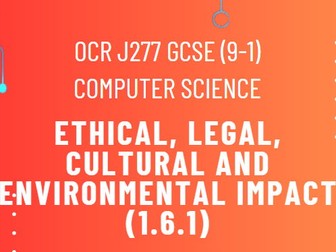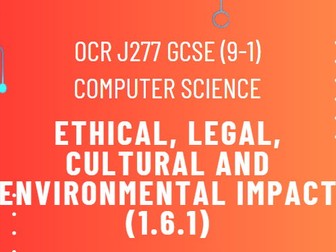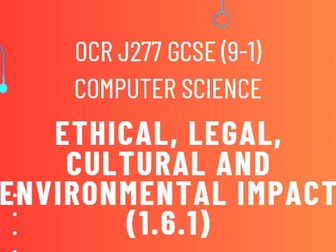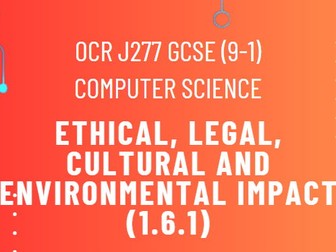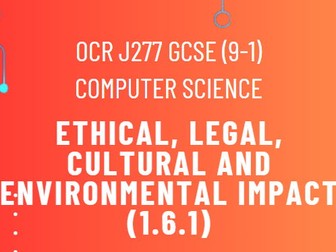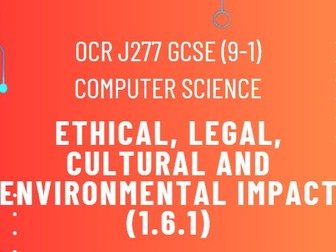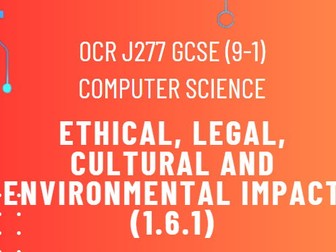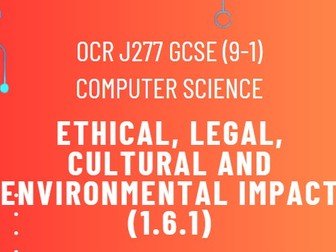Types of processors (A Level)
<p>Lesson about types of processors (RISC,CISC,GPU). Contains elements of component 1.1.1 (e) & 1.1.2 (a,b,c) from OCR A-Level Computer Science spec. Lesson has exam style questions with mark scheme.</p>
<p>Contains explanations of Von Neuman and Harvard Architecture and their differences. Also contains a comparison of CISC (Complex Instruction Set) and RISC (Reduced Instruction Set) Instruction sets, co-processors such as GPU’s and there uses, Multi-core systems and parallel systems.</p>
<p>Included is a Powerpoint with notes and tasks, exam question worksheets and a separate Powerpoint task to help aid progress.</p>
<p>Please leave a review with your feedback. Thanks</p>
